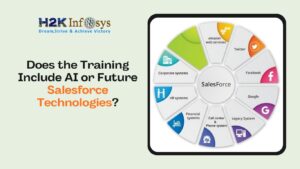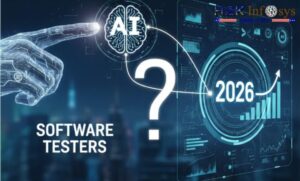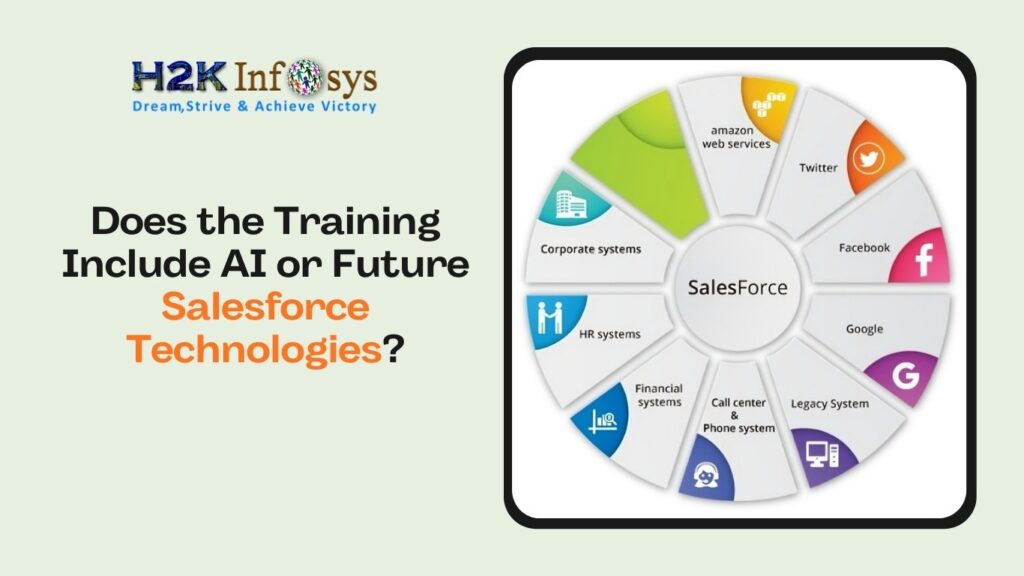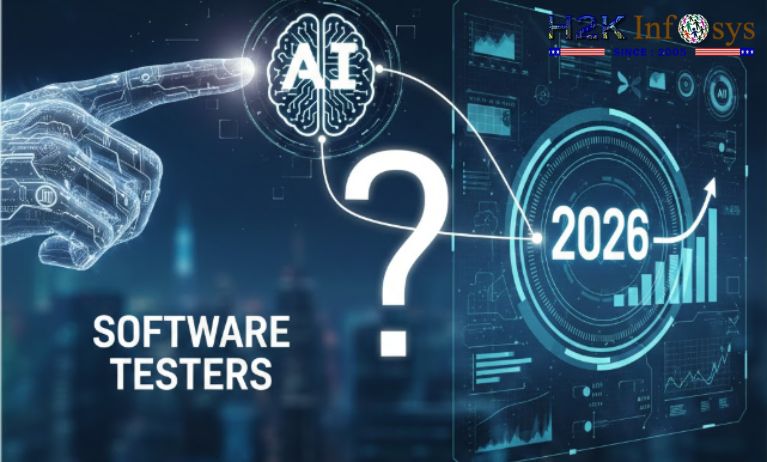Data science has become one of the most pivotal fields in modern business and technology. Its impact spans across industries, driving decisions, innovations, and strategies that shape our world. As we move forward, the evolution of data science will continue to bring transformative changes. This article explores key predictions for the future of data science and how these trends will shape the industry in the coming years.
The Rise of Artificial Intelligence and Machine Learning Integration
Artificial Intelligence (AI) and Machine Learning (ML) have already revolutionized data science, and their influence is only set to grow. The future will see even deeper integration of AI and ML into data science practices. As these technologies advance, they will become more accessible and more powerful, enabling businesses to leverage vast amounts of data to drive decision-making and innovation.
In the near future, AI and ML algorithms will be able to process and analyze increasingly complex datasets, delivering more accurate and actionable insights. The focus will shift from merely using AI for analysis to embedding it within core business processes, making AI-driven decision-making a standard practice across industries. This integration will enhance predictive analytics, automate routine tasks, and enable more personalized and real-time data-driven strategies.
Expansion of Automated Machine Learning (AutoML)
Automated Machine Learning (AutoML) is rapidly gaining traction as a tool that democratizes access to advanced data science techniques. AutoML platforms are designed to automate the process of building, training, and deploying machine learning models, making it easier for non-experts to utilize data science in their work.
As AutoML technologies mature, we can expect to see an increasing number of businesses adopting these tools to streamline their data science workflows. This shift will allow business analysts, engineers, and other professionals to develop and deploy machine learning models without requiring extensive knowledge of data science. While this may reduce the need for routine data science tasks, it will also free up data scientists to focus on more complex challenges, such as developing new algorithms and improving model accuracy.
Enhanced Focus on Ethical AI and Data Governance
With the growing reliance on data science in critical decision-making, the ethical implications of AI and data usage have come under intense scrutiny. Issues such as algorithmic bias, data privacy, and transparency have become central concerns for businesses and regulators alike. In response, the future of data science will see a greater emphasis on ethical AI and robust data governance.
Organizations will need to establish clear guidelines and frameworks for the ethical use of AI, ensuring that their models are transparent, fair, and accountable. This will involve rigorous testing and validation processes to detect and mitigate biases in algorithms, as well as implementing strong data governance practices to protect user privacy and comply with regulatory requirements. Data scientists will play a crucial role in this shift, requiring them to develop not only technical skills but also a deep understanding of ethics and legal considerations in data science.
Integration of Data Science with Business Strategy
As businesses increasingly recognize the value of data-driven decision-making, data science will become more deeply integrated with business strategy. In the future, data science teams will work more closely with business leaders to ensure that data insights align with strategic objectives, driving more effective decision-making and better business outcomes.
This integration will require data scientists to have a strong understanding of business concepts and to communicate their findings in a way that is accessible to non-technical stakeholders. The ability to translate complex data into actionable insights will become a key skill for data scientists, enabling them to influence strategic decisions at the highest levels of an organization.
Advancements in Real-Time Data Processing and Edge Computing
The proliferation of the Internet of Things (IoT) and edge computing is set to revolutionize how data is collected, processed, and analyzed. Edge computing refers to the practice of processing data closer to where it is generated, rather than relying on centralized data centers. This approach reduces latency, improves data security, and enables real-time decision-making.
In the future, data scientists will increasingly leverage edge computing to analyze data from IoT devices in real-time. This will be particularly important in industries such as healthcare, manufacturing, and smart cities, where timely data processing can lead to significant improvements in outcomes. The ability to analyze data at the edge will also enable new applications of data science, such as real-time monitoring and predictive maintenance.
Increased Adoption of DataOps and MLOps
DataOps and MLOps are emerging practices that aim to streamline and automate the processes involved in managing data and deploying machine learning models. These practices borrow principles from DevOps, focusing on collaboration, automation, and continuous improvement.
In the future, we can expect to see widespread adoption of DataOps and MLOps as organizations seek to improve the efficiency and reliability of their data science operations. By adopting these practices, businesses will be able to accelerate the deployment of machine learning models, reduce the time it takes to bring new models to production, and ensure that their data pipelines are scalable and robust.
DataOps and MLOps will also help organizations maintain the quality and integrity of their data, which is critical for the success of any data science initiative. As these practices become more widely adopted, they will become essential components of the data science toolkit.
The Growing Importance of Explainable AI
As AI becomes more integrated into business processes, the need for explainable AI (XAI) will become increasingly important. Explainable AI refers to AI systems that provide clear, understandable explanations for their decisions and predictions. This is crucial for building trust in AI systems, especially in industries where decisions can have significant ethical or legal implications.
In the future, organizations will place a greater emphasis on developing AI models that are not only accurate but also transparent and explainable. This will involve the use of techniques such as interpretable machine learning, model-agnostic explanations, and visualizations that make it easier for stakeholders to understand how AI systems arrive at their conclusions.
Explainable AI will be particularly important in regulated industries such as finance, healthcare, and insurance, where organizations are required to justify their decisions to regulators and customers. By adopting explainable AI, businesses will be able to build trust with their stakeholders and ensure that their AI systems are used responsibly.
The Role of Data Science in Sustainability and Social Impact
As the world grapples with challenges such as climate change, resource scarcity, and social inequality, data science will play a crucial role in addressing these issues. In the future, we can expect to see more data science initiatives focused on sustainability and social impact, using data to drive positive change in areas such as environmental conservation, public health, and education.
Data scientists will be increasingly called upon to develop models and tools that can help organizations reduce their environmental footprint, optimize resource usage, and make more sustainable decisions. This will involve the use of data science techniques such as predictive analytics, optimization, and simulation to model the impact of different strategies and identify the most effective approaches.
At the same time, data science will play a key role in addressing social challenges, such as improving access to education and healthcare, reducing poverty, and promoting equality. By leveraging data to understand and address these issues, data scientists can contribute to creating a more just and sustainable world.
Emergence of Quantum Computing in Data Science
Quantum computing is an emerging technology that has the potential to revolutionize data science by solving complex problems that are currently intractable for classical computers. While quantum computing is still in its early stages, the future will likely see its application in data science grow as the technology matures.
Quantum computing could enable data scientists to analyze massive datasets more efficiently, optimize complex models, and perform simulations that are currently impossible with classical computers. This could lead to breakthroughs in areas such as drug discovery, climate modeling, and financial optimization.
As quantum computing technology advances, data scientists will need to develop new skills and techniques to take advantage of its capabilities. This will involve learning how to design and implement quantum algorithms, as well as understanding the unique challenges and opportunities that quantum computing presents.
The Continued Evolution of Data Science Education
As the field of data science continues to evolve, so too will the education and training required to succeed in this rapidly changing industry. The future will see a growing demand for data science education that is not only technically rigorous but also interdisciplinary, combining knowledge from fields such as computer science, statistics, ethics, and business.
Data science programs will increasingly emphasize hands-on experience, real-world applications, and collaboration with industry partners. This will help ensure that graduates are well-prepared to tackle the complex challenges they will face in their careers.
In addition to traditional degree programs, we can expect to see the continued growth of online learning platforms, bootcamps, and certification programs that offer flexible and accessible pathways into the field of data science. These programs will play a crucial role in meeting the growing demand for data science talent and ensuring that professionals have the skills they need to succeed.
Conclusion
The future of data science is full of exciting possibilities, driven by advancements in technology, growing ethical considerations, and the increasing integration of data science with business strategy. As AI, machine learning, and other technologies continue to evolve, data scientists will be at the forefront of innovation, helping organizations navigate the complexities of the modern world.
By staying ahead of these trends and embracing new technologies and practices, data scientists can continue to drive meaningful change and create value in their organizations. The predictions outlined in this article provide a glimpse into the future of data science, offering insights into the trends and developments that will shape the industry for years to come.


























